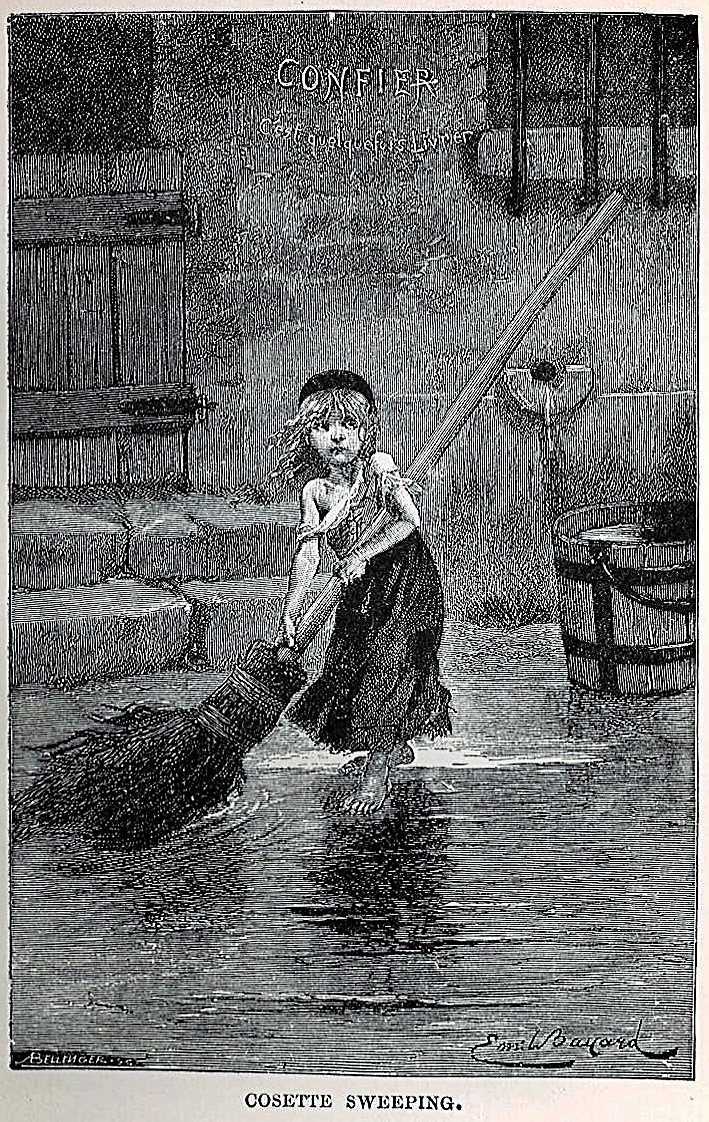Release Date: December 25, 2012
Studio: Working Title Films, Relativity Media
Starring: Hugh Jackman, Russell Crowe, Anne Hathaway, Eddie Redmayne & Amanda Seyfried
 |
| 2012 Poster - Universal Pictures |
I do enjoy a great musical on film. Moulin Rouge! (2001) and The Phantom of the Opera (2004) happen to be two of my favourite movies of all time. And it isn't just the singing. These two films have some of the most beautiful costumes and settings that truly transform you to a different time and place. A musical film creates imagery that isn't possible to do on stage. From what I hear, the recent movie of Les Miserables apparently has a similar affect on the audience that the stage just couldn't produce.
Les Miserables as a film is beautiful. It opens the audience's eyes to the extreme poverty of this period in France. There is no assistance and no way to move up in life. With nothing and no hope for a future, the impoverished of France seek desperate measures to survive.
The story begins with the main character Jean Valjean's (Jackman) release from prison by a guard named Javert (Crowe). Valjean is placed on parole and unable to receive any form of work under his current conditions. Starving and freezing, Valjean is found by an old bishop who feeds him and allows him to rest in his home. During the night, Valjean steals the bishop's silver and flees the home. After being caught by officers, the bishop insists that he gave Valjean the silver and that he actually forgot to take the candlesticks. Overwhelmed by the bishop's kindness, Valjean decides to change his life, break parole, and start fresh under a new name.
From here, he begins his own factory and becomes a wealthy man. After a worker, Fantine (Hathaway) is fired without just cause, forced into prostitution, and dies from disease, he vows to take care of her daughter, Cosette. Valjean never reveals his past to Cosette, but it leaves them constantly on the run after Javert discovers his true identity. Cosette grows up to be beautiful and naturally Hugo has her fall for a man who is at the centre of a revolution. Wanting to secure his daughter's happiness and stop a life of hiding,Valjean thrusts himself into the revolution to help save the young man.
 |
| Original Cover by Emile Bayard - 1862 |
It is a complicated plot line that needs to be followed carefully. It is also being told all through song...and I mean ALL through song. Now as I mentioned previously, I love a good musical, however I do prefer it with some talking. Viewers be warned that Les Miserables features sing-talking, which isn't as fluid as just singing alone. It also became awkward as characters sang/talked/died on screen, which inevitable prolonged the dying. Another negative was that it was about 45 minutes too long and audience members were becoming restless towards the end (at least the two I brought with me).
Overall, it was an experience and a very well-done film with the positives definitely outweighing the negatives.
No comments:
Post a Comment